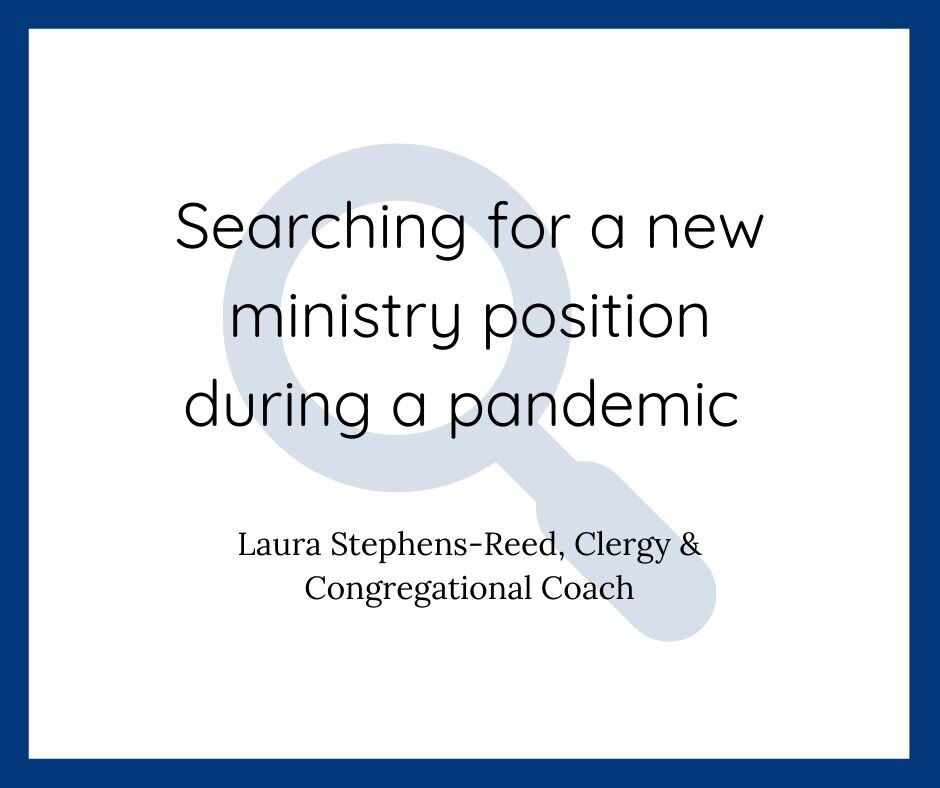Many clergywomen find themselves in the position of needing to re-invent themselves at some point. There are many reasons why. We are geographically limited. Or congregational ministry positions are drying up as church budgets shrink. Or we have small children or aging parents who need more of our attention than full-time congregational ministry allows. Or we’ve been scarred by church work. Or we have yet to find a venue that fully utilizes our gifts. Or God is at work in us, shaping a vision of what we’ve been made for.
And so we dream about – or are forced to consider – what an out-of-the-box ministry could look like. Let me say (as someone who has been there) that I am in your corner. I’d offer these steps to you as you mull and plan.
Define your purpose in ministry. What is it that God is nudging you to do? The specific tasks aren’t as important at this point as what your overall aim is. “I create spaces for people to grow their relationships with God and one another.” “I help churches navigate change with clarity and hope.”
Free yourself up to think broadly about ministry. Many seminaries are geared to drive students toward traditional congregational ministry positions. There’s more than one way, though, to live out your purpose in ministry. What way(s) suit you and your strengths?
Consider the environment you need. What kind of space does your ministry require? Do you work best with people or on your own? What supports and/or accountability will allow you to make the most of your gifts? What equipment or resources can undergird your efforts? How important is location to your success?
Think about your financial requirements. Creating your own ministry often means leaving the world of steady pay and benefits. How much fluctuation in income can you tolerate, at least in the short term? How will you secure health insurance? Remember too that business expenses will now likely come out of your gross income, and be sure to figure that in to your projections.
Identify to whom your ministry would be good news. If God is inviting you to consider a new venture, your efforts will be valuable to others as well. Find those people, tell them what you’re mulling, and listen deeply to the feedback as you gauge their level of excitement.
Pray on it. After you’ve done all of the above, turn your data and your shoulds and coulds over to God: that would you have me do? This is a time for discernment, not decision-making.
Promote yourself. “Noooo…” you might be thinking. “I don’t want to do that. I can’t do that.” But remember those people you talked to who saw great potential in what you were thinking about. Letting those who need your ministry know that your help is available is a service to – not a burden on – them.
Set attainable targets for yourself. You have very little control over whether you net a certain number of new clients per month, so a goal like this is a recipe for frustration. You can absolutely make so many new contacts or spend X number of hours per week working on a particular project, though. These kinds of mileposts keep you moving forward.
Celebrate the flexibility you have when times are lean. Hustling is hard. It requires tenacity. You will wonder many times if you heard God correctly when you stepped out on this limb. And, you will be so glad when you don’t have to plan time away, whether it’s to attend an event your child’s school or to get away for a few days, around a million other concerns.
Find colleagues. Even if you work well alone, don’t allow yourself always to be alone. Look for people with whom you can provide mutual encouragement, space to vent, and brainstorming time.
Keep learning and growing. There’s a lot of trial and error in starting up a new venture. Instead of letting the errors discourage you, use them for further discernment. What about this particular try helped me be faithful to my purpose? What distracted me from it? Use those reflections to refine your ministry.
Be patient with yourself. You are brave. You are wise. You are innovative. You have much to offer. And, it will take time to build your ministry. Release yourself from the expectation – and the pressure that comes with it – of going from 0 to 60 in a few months.
I have found great joy in reimagining what ministry looks like for me. That does not mean it’s always been easy. It took a long time to build toward sustainability, but I can now confidently say it was worth the effort. So all the best to you in your new season of ministry. Know that I am here to help if you need it.













